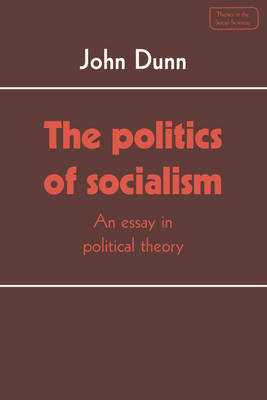'Why do any human beings choose to be socialists? Why has socialist politics proved in practice so frequently disappointing? How far can socialist ideas still serve to inform and guide political judgement in modern states for the better? Are the evident weaknesses of socialist politics in all its varieties likely to lead to its disappearance from modern political activity in the readily imaginable future?' These are the questions John Dunn faces in this book, offering an appraisal of the strengths and weaknesses of socialism as a political theory. Its strengths, he argues, will always lie in its hostility to the manifest injustices of capitalist property relations. But its weaknesses stem from an inadequate and disingenuous conception of political power and political action, and from the widespread failures of socialist economic planning. Dunn goes on to examine how these failings might be remedied or minimized, given the options available from present conditions and the history of socialist politics. The conclusions of his analysis are not optimistic: the future for socialism will not be a comfortable one. But, he says, an honest recognition of the real problems that exist and an understanding of their causes is the only way of renewing confidence in socialism's promises of democracy and material security. This book is an attempt to confront problems which have arisen largely from the practice of socialist politics itself and to locate their sources within the confusions and equivocations of existing understandings of socialism.
- ISBN13 9780521318402
- Publish Date 4 October 1984
- Publish Status Active
- Out of Print 23 February 2022
- Publish Country GB
- Imprint Cambridge University Press
- Format Paperback (US Trade)
- Pages 124
- Language English
